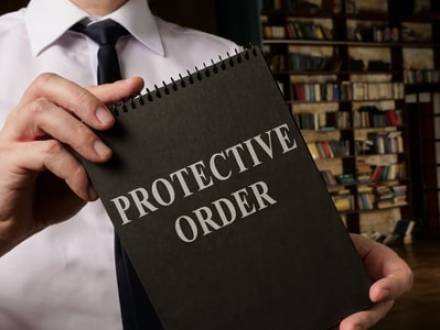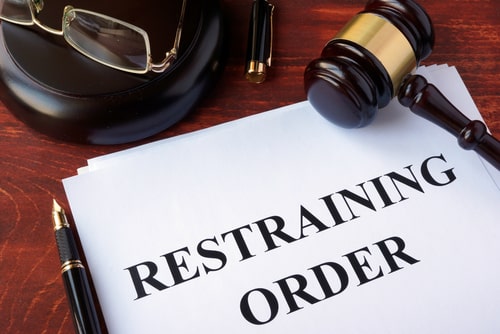Recent Blog Posts
Do I Need a Criminal Defense Attorney?
 When faced with criminal charges, even minor ones, hiring a criminal defense attorney is crucial. Many people believe that they can handle minor legal issues on their own, especially if they think the charges are not serious. However, the legal system is complex, and what might seem like a small issue can quickly become fines, jail time, and a permanent criminal record.
When faced with criminal charges, even minor ones, hiring a criminal defense attorney is crucial. Many people believe that they can handle minor legal issues on their own, especially if they think the charges are not serious. However, the legal system is complex, and what might seem like a small issue can quickly become fines, jail time, and a permanent criminal record.
A criminal conviction, no matter how minor, can have long-lasting consequences on your life, affecting your job, reputation, and future opportunities. This is why having a skilled Texas criminal defense attorney by your side is important to protect your rights and navigate the legal process effectively.
What Does a Criminal Defense Attorney Do?
A criminal defense attorney is a legal professional who defends people who have been accused of crimes. Their main jobs are to:
What Are the Penalties for Committing Forgery in Texas?
 Are you or someone you know facing forgery charges in Texas? The situation is serious, and the consequences can be life-changing. Forgery accusations in Texas are not taken lightly by law enforcement or the courts. A conviction could mean jail time, hefty fines, and a criminal record that follows you for years.
Are you or someone you know facing forgery charges in Texas? The situation is serious, and the consequences can be life-changing. Forgery accusations in Texas are not taken lightly by law enforcement or the courts. A conviction could mean jail time, hefty fines, and a criminal record that follows you for years.
But what exactly counts as forgery in Texas? What penalties might you be facing? And most importantly, what can you do to protect your rights and future? A Texas lawyer can help you figure out what you should do in your specific situation.
What is Considered Forgery in Texas?
In Texas, forgery covers various deceptive actions involving documents. It includes creating, altering, or using a false document with the intent to defraud or harm another person. This can take many forms, from putting someone else’s signature on a check to altering the amount on a financial document.
Defense Against False Protective Order Claims in Texas
 In Texas, protective orders are powerful legal tools designed to protect individuals from abuse, harassment, or threats. However, these orders can sometimes be misused, leading to false accusations that can have severe consequences if you are accused. Understanding the process and your rights is helpful if you find yourself wrongly facing a protective order. A Texas lawyer can help you if you receive a false allegation.
In Texas, protective orders are powerful legal tools designed to protect individuals from abuse, harassment, or threats. However, these orders can sometimes be misused, leading to false accusations that can have severe consequences if you are accused. Understanding the process and your rights is helpful if you find yourself wrongly facing a protective order. A Texas lawyer can help you if you receive a false allegation.
The Impact of a Protective Order
A protective order, often referred to as a restraining order, can significantly affect your life, even if based on false allegations. The consequences may include:
- Restrictions on your movement and communication
- Potential loss of access to your home
- Limitations on child custody and visitation rights
- Negative impact on your reputation and employment
What Are the Consequences of Violating Probation in Texas?
 Probation offers individuals convicted of a crime the opportunity to serve their sentence under supervision within the community rather than in jail or prison. However, violating probation terms can lead to severe consequences. A Texas lawyer can help you understand the potential outcomes of your situation.
Probation offers individuals convicted of a crime the opportunity to serve their sentence under supervision within the community rather than in jail or prison. However, violating probation terms can lead to severe consequences. A Texas lawyer can help you understand the potential outcomes of your situation.
What Constitutes a Probation Violation?
Probation violations occur when an individual fails to comply with the terms and conditions set by the Texas court. Common violations include:
- Failing to report to the probation officer
- Committing a new offense
- Failing drug tests
- Associating with known criminals
- Leaving the assigned area without permission
- Violating curfew
- Failing to maintain employment or attend required programs
How Serious is a Charge for Selling Drugs in Texas?
 In Texas, drug-related offenses are treated with seriousness, and charges for selling drugs can have severe consequences. Understanding the nature of these charges is crucial for anyone facing such allegations. A Texas lawyer can help you learn more in-depth what these charges could mean for you, specifically based on your circumstances.
In Texas, drug-related offenses are treated with seriousness, and charges for selling drugs can have severe consequences. Understanding the nature of these charges is crucial for anyone facing such allegations. A Texas lawyer can help you learn more in-depth what these charges could mean for you, specifically based on your circumstances.
Classification of Drug Offenses
Texas categorizes controlled substances into penalty groups, with Group 1 being the most severe and Group 4 the least. Common drugs in each group include:
- Group 1: Cocaine, heroin, methamphetamine
- Group 2: Ecstasy, PCP
- Group 3: Certain prescription drugs like Valium and Xanax
- Group 4: Compounds containing limited quantities of narcotics
The severity of the charge depends on the type and amount of drug involved.
Penalties for Drug Sale Offenses
Selling drugs in Texas can result in felony charges, which carry significant penalties:
Important First Steps When Facing Manslaughter Charges
 Facing manslaughter charges can be a terrifying experience. The potential consequences are severe, and the legal process is not easy to understand. However, by taking the right steps from the very beginning, you can possibly improve your chances of achieving a favorable outcome. A Texas lawyer can discuss the actions you should take.
Facing manslaughter charges can be a terrifying experience. The potential consequences are severe, and the legal process is not easy to understand. However, by taking the right steps from the very beginning, you can possibly improve your chances of achieving a favorable outcome. A Texas lawyer can discuss the actions you should take.
Find Out the Specific Charges Against You
Manslaughter is a second-degree felony in Texas, carrying a potential prison sentence of two to 20 years and a fine of up to $10,000. You must understand the specific allegations against you and the circumstances that led to the charges. In Texas, manslaughter is defined as recklessly causing the death of another person. This means that the prosecution must prove that your actions were reckless and directly led to the individual’s death.
Can You Get Charges Dropped after Driving Without a License?
 Driving without a valid license in Texas can lead to serious legal consequences. If you face charges for this offense, you may wonder if it is possible to get those charges dropped. A Texas lawyer can help you with potential avenues for dismissing driving without a license charges and what you can expect from the legal process.
Driving without a valid license in Texas can lead to serious legal consequences. If you face charges for this offense, you may wonder if it is possible to get those charges dropped. A Texas lawyer can help you with potential avenues for dismissing driving without a license charges and what you can expect from the legal process.
Make Sure You Understand the Severity of the Offense
In Texas, driving without a valid license is considered a misdemeanor offense. The penalties for this crime can vary depending on the specific circumstances of your case. Generally, a first-time offense is classified as a Class C misdemeanor, punishable by a fine of up to $500. However, if you have been convicted of driving without a license in the past, the offense may be elevated to a Class B misdemeanor, which carries a potential fine of up to $2,000 and up to 180 days in jail.
Can You Challenge a Restraining Order Against You?
 If you have been served with a restraining order, it is helpful to understand your rights and the legal options available to you. While a restraining order can significantly impact your life, you may be able to challenge it under certain circumstances. A Texas lawyer can help you figure out if you have the potential to challenge your situation.
If you have been served with a restraining order, it is helpful to understand your rights and the legal options available to you. While a restraining order can significantly impact your life, you may be able to challenge it under certain circumstances. A Texas lawyer can help you figure out if you have the potential to challenge your situation.
Grounds for Challenging a Restraining Order
To successfully challenge a restraining order in Texas, you must demonstrate that the order was issued based on false or insufficient evidence. Some grounds for challenging a restraining order include:
- Lack of evidence: If the petitioner fails to provide sufficient evidence to support their claims of abuse, harassment, or stalking, you may argue that the restraining order is unwarranted.
What to Do If Charged with Public Intoxication
 Facing charges of public intoxication can lead to an overwhelming experience filled with uncertainty. Make sure you understand your legal rights and the steps you need to take to get the best outcome possible. A Texas lawyer can assist you in understanding the potential consequences and advise you on the appropriate course of action if you face such charges.
Facing charges of public intoxication can lead to an overwhelming experience filled with uncertainty. Make sure you understand your legal rights and the steps you need to take to get the best outcome possible. A Texas lawyer can assist you in understanding the potential consequences and advise you on the appropriate course of action if you face such charges.
What to Know About Public Intoxication
Under Texas Penal Code Section 49.02, public intoxication is defined as appearing in a public place while intoxicated to the degree that you may endanger yourself or others. Alcohol, drugs, or any other substance can cause intoxication. It is important to note that you do not need to be driving to be charged with public intoxication; when you are intoxicated in a public space, it is enough to warrant an arrest.
What to Do When Charged with Reckless Driving in Texas
 Facing a reckless driving charge in Texas can be intimidating. Understanding the potential consequences and taking the necessary steps to protect your rights is important. A Texas lawyer can help determine what constitutes reckless driving in Texas, the penalties you may face, and what actions you should take if you find yourself in this situation.
Facing a reckless driving charge in Texas can be intimidating. Understanding the potential consequences and taking the necessary steps to protect your rights is important. A Texas lawyer can help determine what constitutes reckless driving in Texas, the penalties you may face, and what actions you should take if you find yourself in this situation.
What is Considered Reckless Driving in Texas?
Under Texas Transportation Code Section 545.401, reckless driving is defined as operating a vehicle with willful or wanton disregard for the safety of persons or property. This can include behaviors such as excessive speeding, weaving in and out of traffic, or disregarding traffic signals. It is important to note that reckless driving is a criminal offense, not just a simple traffic violation.






